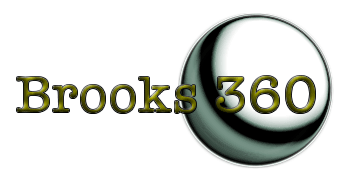Human nature frequently and falsely associates feedback with negativity. We begin to focus so heavily on our failures, imperfections, and faults that we miss the areas in which we are excelling. This creates an environment of zero trust, zero perspective, and ultimately zero truth. There is hope, however, and it rests in the power of the human brain’s ability to learn from experience. This concept is known as neuroplasticity and it is fueled by feedback and experiences.
We must use our experiences and interactions with others to reshape our mindest from the fixed negative state to a state of opportunity or “growth.” We must ask ourselves “How can I get better if I am afraid to address or identify my areas of opportunity?” The challenge is that our brains process negative data faster and hold on to this perceived negative data longer. To combat this, we must instill a filter of awareness that quickly identifies negativity in our thinking.
The goal should be to train our minds to screen all feedback and spin it for our advantage or personal growth. A real life example would be physical fitness. We know that lifting weights and running for long distances may cause muscle soreness and pain, but we continue to train because we develop more tolerance and endurance in the process. We should apply the same context to verbal feedback and interactions in our lives.
Corporate leaders and elite athletes have mastered this context and push their bodies and minds to higher limits. This is the essence of the “Growth Mindset”. We have to gain feedback and embrace any perceived negative data. This is the only way to improve.
Next, are some tips to use on your feedback journey. They will help you along the way…
Avoid Prove Mode: We constantly operate in competitive environments that trick us into a common pattern of “prove” mode. This can be proving that I am better than my peers for a job or promotion, or simply proving that I am “right.” This is an opportunity to revisit that filter of awareness we are building our growth mindset, thus allowing information to influence positive behaviors that support our personal development. Remember, we are looking to move away from proving anything to anyone, including ourselves. Our focus is improvement and growth.
Become a seeker: Seeking feedback is the fastest way to gain actionable intel on how you can grow. This information can come from trusted advisors or normal interactions. Attempt to focus the details on specific actions that will help you grow and advance in life. Being a seeker can have a dual effect, its positive for you, but also influences others to seek feedback as well.
- Give the extender of feedback permission to be honest, but really mean it…
- Make sure you focus the request. Do not just ask for feedback, instead ask for a specific area of focus
- Follow up with the extender to ensure progress is being made.
- Be willing to ignore some received feedback. Remember, we are instilling a new filter in our mind to qualify and prioritize our actions based on our growth/improvement focus.
Personal Feedback: Outside feedback is valuable, but internal personal feedback is of equal value. Everyone should reflect on how to improve, but also realize where you are excelling. Below are some examples of feedback producing questions that you can use for both personal and professional life:
- What brings me joy? How much time do I devote to this area? Is it enough?
- Do I see myself as valuable, not the product and service I am providing, but me…”. This is an ever changing answer. But simply focusing on it provides perspective.
- What motivates me? This is completely different question than joy…
- What is my greatest weakness? How am I working to improve that area? Do I really need to improve that area?
- Do I have relationships with people who provide me feedback? If no, Why not?
Let’s start to change the feedback loop. Create a world where we embrace feedback and use it to drive “growth” and learning on a consistent basis. For more on the topic of feedback I recommend the book: Feedback and other dirty words by T. Chandler.
*References: Chandler, Tamra. Feedback and Other Dirty Words. BK publishing 2020.


Recent Comments